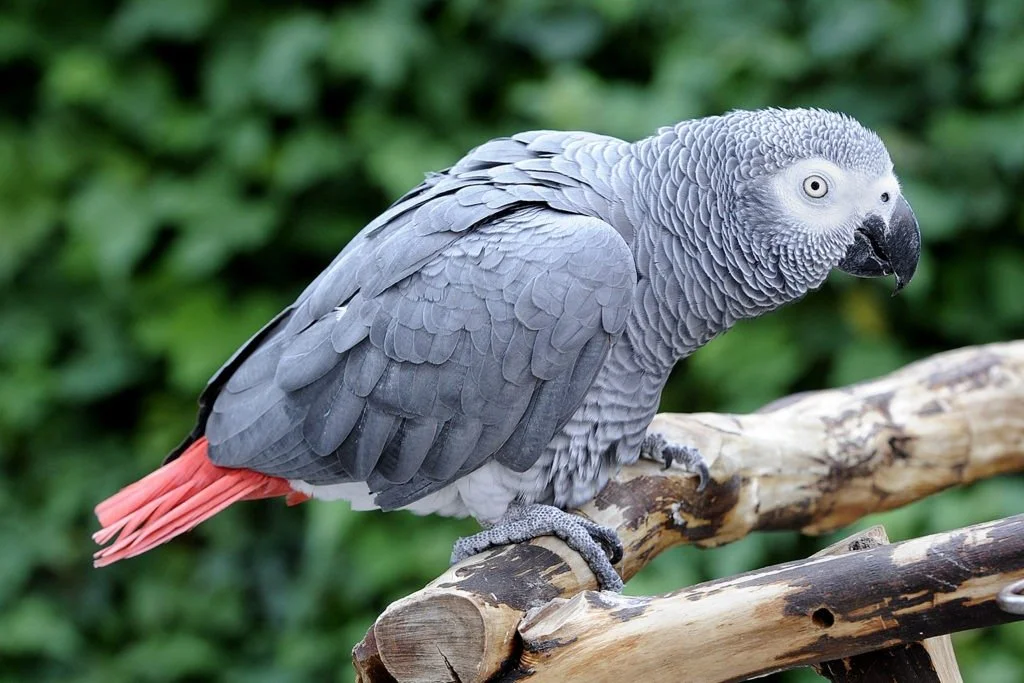Grey parrots get new protections in DRC
Africa grey parrot
Eastern Democratic Republic of Congo (DRC) remains mired in a war over mineral wealth, a war caused by greed and a disaster for the 17 million people trapped in the war zone. But even in the worst of times, it is important to note a glimmer of good news when it happens.
The DRC has taken an important step in protecting an endangered species by outlawing the capture and sale of grey parrots.
Grey parrots are one of the most popular bird pets in the world because they can mimic human speech. More than 20% of the wild population is harvested annually. Sadly, an estimated 30-66% of grey parrots captured for the exotic pet trade die before reaching the international market. Grey parrots have been hunted to extinction in some parts of west Africa, and most of the birds captured for the pet trade now come from DRC.
DRC’s new law makes it illegal to capture, kill, transport, or sell grey parrots anywhere in DRC.
Dr. Rowan Martin, the World Parrot Trust’s director of Africa Region and Bird Trade programs, said the new law “is a hugely significant step towards safeguarding the species across vast swathes of the Congo basin where trapping has been rampant and has devastated wild populations.”
Now that the grey parrot trade has been outlawed, the focus must shift to enforcing the law. For years, wildlife traffickers have illegally shipped protected animals out of DRC by falsifying shipping documents, and claiming the animals were a different, unprotected animal. As Dr. Martin noted, “Large numbers of wild animals are legally exported from the DRC every year and often Grey parrots are laundered as other species. It’s critical that law enforcement efforts and surveillance are ramped up to ensure this new legislation is effective.”
Lwiro Primates Rehabilitation Center accepts all types of wildlife rescued from wildlife traffickers and poachers. With support from the World Parrot Trust, it has rehabilitated and released more than 100 trafficked parrots back to the wild in Kahuzi-Biega National Park. The on-going war has brought a temporary halt to the additional parrot releases that were in the works.
We look forward to an end to the war, when the people and animals in eastern DRC can resume their lives in peace.
